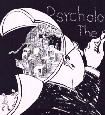|

Return to Teaching Psychology Resources Page
|
|
|
Examples of Useful LinksAs the web develops teachers of psychology have expanded the way they teach, and their students learn. Some examples of more interesting or creative or useful links are listed haphazardly below.
Simulations/Activities on the Web
Local Examples
- Readings: Example of a "Readings" Page
- Forums: Example of a Discussion Forum for Psy101
- Class Homepage: Example of a Home Page for Psychology 101
- Professor Home Page: Example of a Home Page
- Resources : Example of a Resource Page
- Portal: Example of a Blackboard Page (click the "log in" button and then gain guest access by clicking "preview". Then click "course catalog," wait a long time (20 seconds while it loads), then search for the titel that interests you.
Examples of Content
- Grand Illusions. Many web-based applications let students directly manipulate and experience psychological processes. This site focuses on how the visual system can be "tricked" into seeing things "incorrectly." Web-based applications (applets) allow students to directly manipulate the great illusions, and learn about the psychological processes that sustain them.
- Memory. The Memory Exploratorium.
- Personality measurement. Students can take a number of measures of self-esteem, Myers-Briggs Type, and achievement motivation on-line, and receive instant feedback that can be used as fodder for class assignments and discussions.
- Rhythms. Psychologists are interested in rhythms, and how people vary over time in their responsiveness. Although biorhythms are parapsychology, they illustrate the concept of rhythms. To use this page, just input your birth year, month, and date.
- Prisoners Dilemma. A number of programs are available on line that deal with social psychological processes, particularly social influence. Students can, for example, play the PDG at this site.
- Physiological Psychology. Students have much to gain by studying the anatomy and function of the brain and central nervous system in a hypertext environment.
- Controversies in psychology. The web offers students insights into a variety of controversial, breaking stories. For example, the role of genetics in determining intelligence has been hotly debated, and students can review the issue on the WEB. This example comes from the American Psychological Association. Another controversy site deals with
repressed memories.
- Sperling, 1962This site offers some notes on Sperling's iconic image memory work.
- Famous papers and sources.Many classic papers and experiments are now available on the WEB. Students can hear B.F. Skinners voice, visit Leary's home, and read Freud's original The Interpretation of Dreams. This link connects you to George Millers' famous 7 + or - 2 paper.
- Scientific laboratories. Many scientific laboratories have elaborate web pages, where they organize their findings. This page was developed by the sleep lab at UCLA's medical center.
- Statistics This site runs small programs, called applets, that deal with statistics. This one asks you to try to figure out which correlation matches the scatter plot you are shown.
- ChanceThe fabulous Chance site on statistical thinking and application.
- Emotion decoder An admittedly odd site that detects emotions in emails and other text.
Misc.
|
